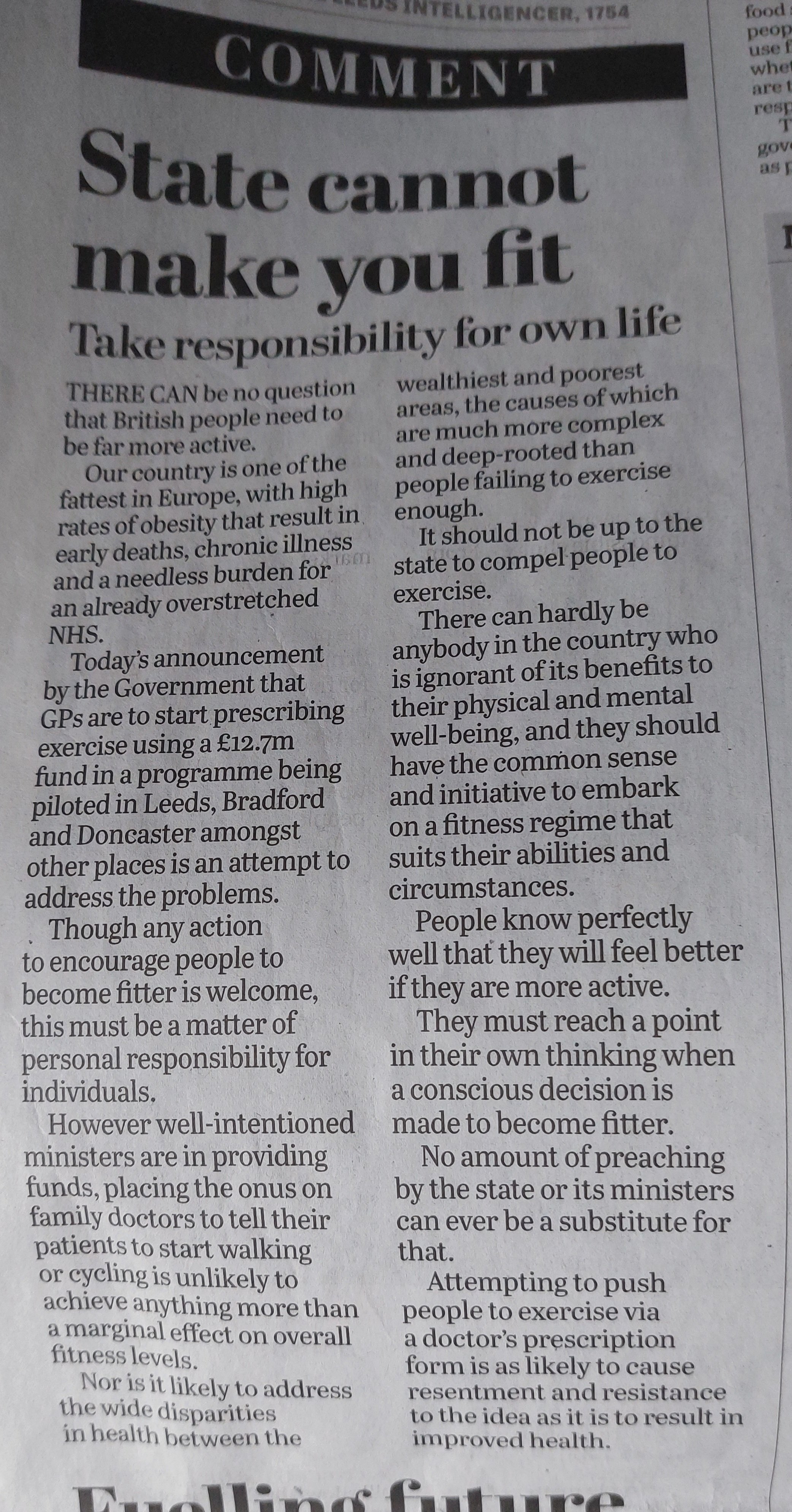GPs to prescribe cycling lessons for unfit
“GPs to prescribe cycling lessons for unfit.” That headline leapt out at me last week when I saw the front cover of the Yorkshire Post newspaper.
It was encouraging to read such a positive article announcing a new initiative aimed at improving active travel infrastructure and the promotion of social prescribing in our NHS.
The quote from Chris Boardman, commissioner of National Active Travel, was of particular interest and summed up the need for this kind of initiative:
“As a nation, we need healthier, cheaper and more pleasant ways to get around for everyday trips.
“Moving more will lead to a healthier nation, a reduced burden on the NHS, less cancer, heart disease and diabetes, as well as huge cost savings.
“This trial aims to build on existing evidence to show how bringing transport, active travel and health together can make a positive impact on communities across England.”
I would go along with every word that Chris says, and that is very much part of the message that I’ve tried to communicate in Find Time for Exercise.
The good news in this article was, sadly, somewhat diluted by two other parts of the paper on Monday August 22nd.
Firstly, the article appeared directly beneath an unrelated photograph of a cycling event with young, male, lycra-clad riders on racing bikes. There was no link between the photograph and the article, but at a quick glance it could be taken the wrong way and the association made between cycle racing and the vastly different type of cycling that GPs might be prescribing and the infrastructure that might be created as a result of this initiative.
Secondly, and of far more concern was the Editorial Comment on page 12. I could only describe this Comment as depressingly negative. Under the heading: “State cannot make you fit”, the newspaper editorial team seem to believe initiatives of this kind are a waste of time and “likely to cause resentment and resistance to the idea”.
The section that really got my proverbial goat read as follows:
“It should not be up to the state to compel people to exercise.
“There can hardly be anybody in the country who is ignorant of its benefits to their physical and mental well-being, and they should have the common sense and initiative to embark on a fitness regime that suits their abilities and circumstances.”
To begin with, I would argue strongly that the proposed initiative is not about the state compelling people to exercise. Many GPs these days are very skilled in speaking to their patients and suggesting ways of taking more exercise and generally building more movement into their daily lives. To use the word “compel” is to completely miss the point of this kind of health initiative.
I will leave aside the inappropriate comment about “common sense” and focus instead on the use of the word “initiative”. Initiative can come from within, but it can also come from an external source, such as a leaflet, a poster in a surgery, an article in a magazine, a post on social media, a chat with a friend, a stern talking-to from your partner or a wise word from your doctor. A wide range of other examples, and conversations with your partner, are available.
To say that people should have the initiative to embark on a fitness regime really is an unfair and sweeping statement, and the point of this blog post is to say that I entirely disagree with it.
There are many good examples of publicly (wholly or partially) funded health messages that have provided the spark, or the initiative, to help people take more exercise and to some extent or other, to lead a happier, healthier, more fulfilling life.
Many of the initiatives led by organisations like Paths for All, British Heart Foundation, This Girl Can and, of course, the National Health Service have positively influenced the lives of many people over the years. That’s because well-planned health initiatives usually work, and when they do work the investment is repaid, several times over, in savings to the NHS. And not just savings to the NHS, improvements in the quality and length of people’s lives.
So, come on Yorkshire Post, re-read that line from Chris Boardman about “a reduced burden on the NHS, less cancer, heart disease and diabetes, as well as huge cost savings”, because those monumental benefits are what could be achieved here. Rather than dismissing an opportunity to reduce the burden on our NHS, please make an effort to embrace it and publicly demonstrate some support.
Yorkshire Post front cover 22nd August 2022
Yorkshire Post article (part 1)
Yorkshire Post article (part 2)
Yorkshire Post Editorial Comment




